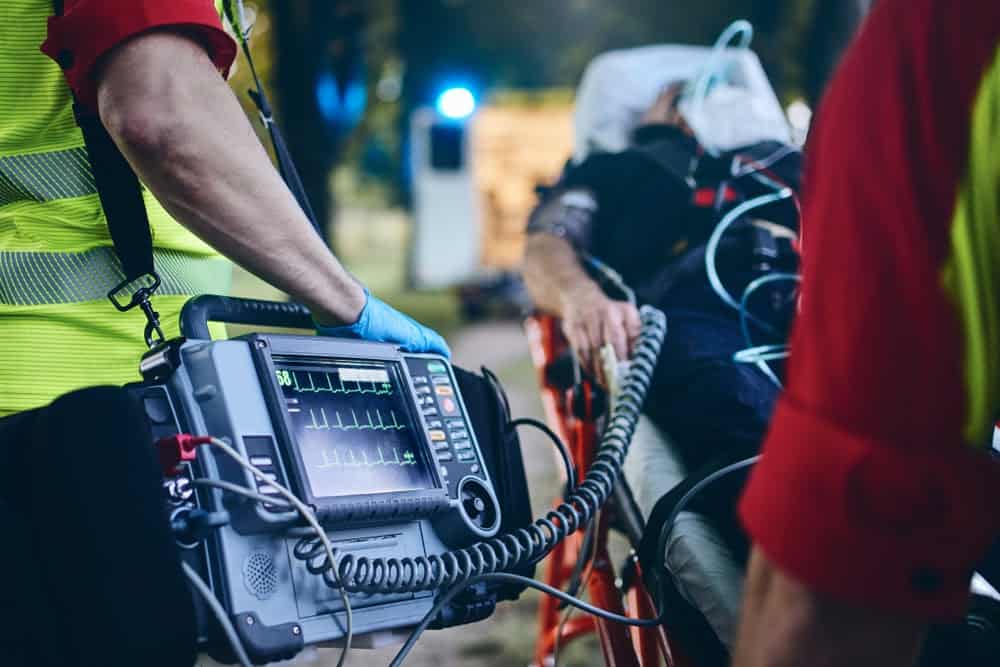

Our region’s first responders risk their lives every day to protect us as citizens. Whether they face fires or medical emergencies, first responders run into danger while others flee. Because first responders are frequently exposed to hazards, many suffer injuries on the job that deserve workers’ compensation.
Although paramedics, firefighters, and police officers have different responsibilities, they often suffer similar types of injuries.
According to the Bureau of Labor Statistics and the National Electronic Injury Surveillance System, the two most common types of injuries for paramedics are sprains and strains (38% of injuries) and overexertion injuries (33%). Overall, common injuries include:
Research also shows that paramedics are more likely to suffer injuries in their first 10 years on the job, especially when responding to 911 calls.

Firefighters are less likely to face assault and violent scenarios, but the physical demands of their job can lead to many different types of injuries. The National Fire Protection Association tracks firefighter injuries based on whether or not they took place while fighting a fire.
In fire fighting situations, the most common injuries to firefighters are:
Outside of fire fighting situations, the most common injuries to firefighters are:
According to the National Institute of Occupational Safety and Health, law enforcement officers are three times more likely to suffer a non-fatal injury on the job than all other U.S. workers. The most common injuries for police officers are:
If a police officer suffers one of these injuries during the course of their employment, they likely qualify for workers’ compensation.
Since first responders are in frequent contact with a variety of people, they are at an increased risk of contracting the coronavirus. While the risk differs from one region to the next, some cities have suffered severe infections among their first responders. New York City reported 1,400 coronavirus cases among New York Police Department employees in April.
In Pennsylvania, the Department of Labor & Industry has outlined workers’ compensation protections for coronavirus infections that originate in the workplace. Although workers in other industries may struggle to prove they contracted COVID-19 at work, first responders have an easier time proving their case since they are at an increased risk for exposure.
Like nearly every other worker in Pennsylvania, first responders (including certain volunteers) are entitled to benefits under the Pennsylvania Workers’ Compensation Act. In some cases, they may be eligible for additional benefits under programs like the Pennsylvania Heart and Lung Act, which allows law enforcement officers and firefighters to be paid their full salary if they are injured but expect to recover and return to work.
To qualify for workers’ compensation, first responders should meet the state’s basic requirements. Although there are many factors involved, injured workers generally must meet these two qualifications:
If you meet these requirements as an injured first responder, you likely qualify for workers’ compensation benefits. If you are unsure of your rights or your employer and their insurance company refuse to offer the benefits you believe you are entitled to, contact an experienced workers’ compensation attorney.
If you’ve been injured as a first responder and are concerned about your workers’ compensation rights, contact us. We’ll work with you to ensure your rights are protected and you receive the benefits you deserve.
"*" indicates required fields